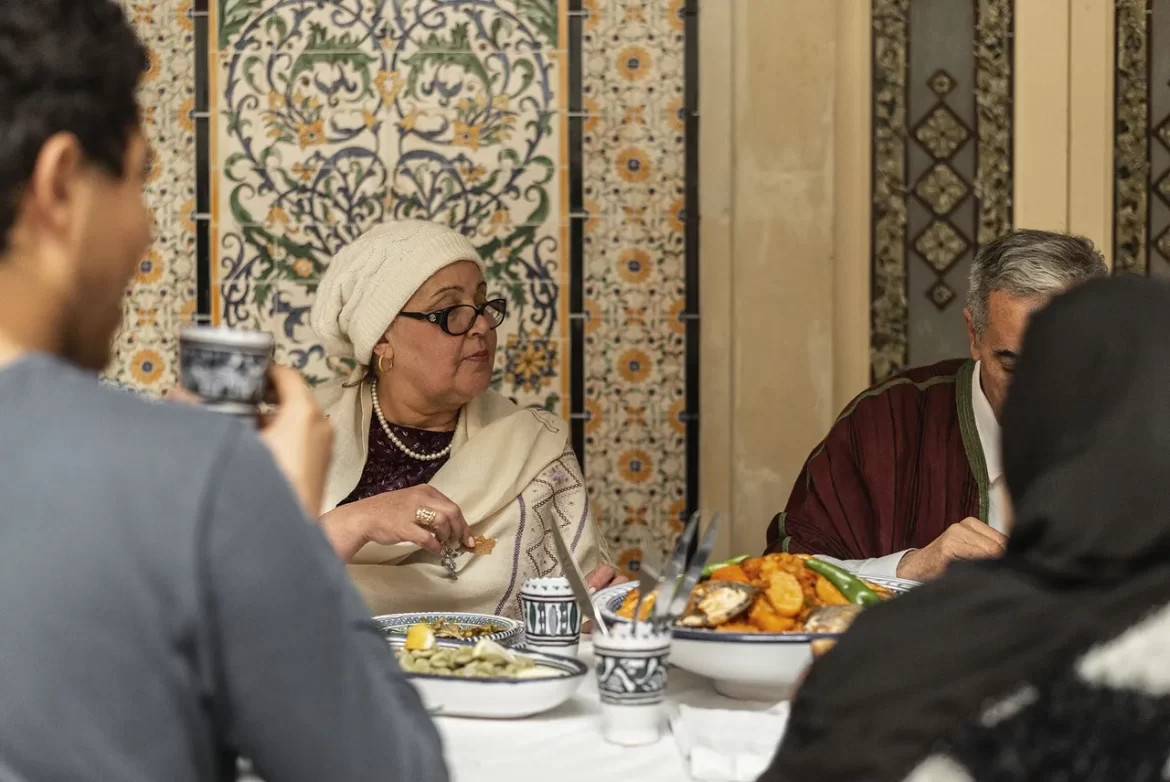Generally speaking, it is not possible to grow up in a Tunisian household without being subjected to the famous “Ti Ehmid Rabbi” response whenever you have the audacity to complain about something.
Why complain or dare to feel bad when there’s food on the table and a roof above your head? After all, the right to feel bad is reserved for extreme cases of poverty and misfortune you see in mediocre tv shows or boomer facebook posts only. Anything beyond that makes you a spoiled person with dramatic tendencies, and in some cases it can go as far as being considered a form of blasphemy.
Whether this response is coming from a parent, an elderly, or even a peer (at a younger age, we simply adore complaining about the behavior of older people then proceeding to follow in their toxic footsteps), it directly links gratitude with faith. The common cultural and religious belief claims that complaining is a show of ingratitude which, in its turn, is a sign of weak faith.
In a sense, we are meant to continuously express gratitude toward God regardless of our circumstances and situation because it could have been worse, or we could trigger a worse situation by not being grateful. (For better visualization of the logic behind this, think of the famous cliché comic scene in half of Hollywood’s movies: a character who had a rough day and hit rock bottom is sitting on the sidewalk and saying the famous line “this can’t get any worse”, and almost on cue, it starts raining.)

And what we are doing to our kids, peers or anyone who qualifies as a victim on the receiving end of “Ti Ehmid Rabbi!” through following this logic and saying this famous line is we are creating ticking bombs of stress-induced violence and absolutely pulverizing any possible benefits that result from expressing gratitude.
Not only are we shaming them for feeling upset, stressed, or any of the myriad of feelings we qualify as “bad” and linking what are perfectly normal human emotions to lack of faith, but we are also encouraging them to remain emotionally constipated and let these feelings pile up inside them until one day they cannot hold it inside anymore and explode in someone’s face. The drop that would fill the cup and lead to this eruption can happen at any given moment and in any given place, and we end up with a society of explosives that can be triggered into reacting violently at any given moment.
The irony in all this is that gratitude in itself is, in fact, scientifically proven to increase people’s rates of happiness and overall life satisfaction. (A book I highly recommend that deals with this topic and provides great explanation and the numbers behind this is The How of Happiness by Sonja Lyubomirsky). Gratitude can help people feel more of what we refer to as “positive emotions”, it can help them deal with problems, build stronger relationships and even improve their health.
That being said, all these advantages cannot be acquired or achieved when gratitude is forced. When a person is emotionally blackmailed via threats of God’s wrath and shaming them for having feelings, expressing gratitude is absolutely pointless. It becomes trivialized, and in certain cases, despised.
When the sentence “Ti Ehmed Rabbi” is constantly used with a condescending tone on people who are already struggling emotionally, it amounts to a form of mental abuse.
Consider this the next time you’re tempted to use the expression when a person expresses their feelings or talks about their struggles in front of you.
Suggested Reads:
- «Chbik Mazroub?»: Being Tunisian in the Age of Rush
- “Kaf w Ka’ba Halwa”: Justifying Abuse with Acts of Kindness
*The opinions and ideas expressed in this article do not reflect the views of Carthage Magazine’s editorial team. To submit an opinion article, please email info@carthagemagazine.com. Learn more.
If you would like to comment on this article or anything else you have seen on Carthage Magazine, leave a comment below or head over to our Facebook page. You may also message us via this page.
And if you liked this article, sign up for the monthly features newsletter. A handpicked selection of stories from Carthage Magazine, delivered to your inbox.


